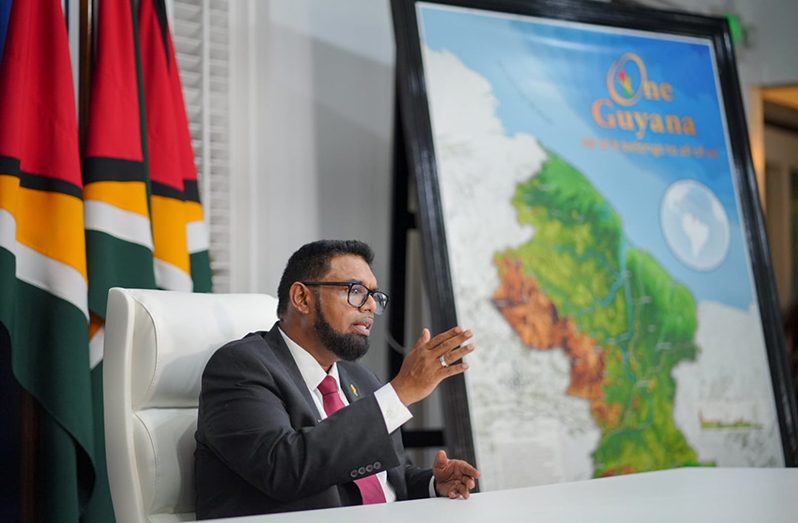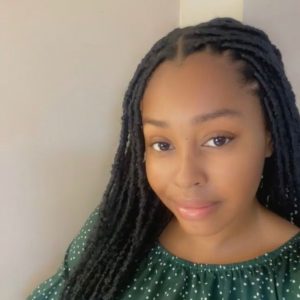–President Ali reiterates border controversy remains squarely before ICJ and not up for discussion
STANDING firm on his consistent position that Guyana’s land boundaries are not up for discussion, President Dr. Irfaan Ali has agreed to meet with his Venezuelan counterpart, Nicolás Maduro in the spirit of keeping the region a zone of peace.
The meeting will take place on Thursday, December 14, 2023 at 10:00 hrs in St. Vincent and the Grenadines, and will be hosted by that country’s Prime Minister, Dr. Ralph Gonsalves. In attendance will be Brazil’s President Luiz Inacio ‘Lula’ da Silva, Heads of State of the Caribbean Community (CARICOM), a United Nations Under-Secretary General, and the Community of Latin American and Caribbean States (CELAC).
Calling for both Presidents to meet with the aim of promoting peace within the region, Dr. Gonsalves, in a letter sent to both Presidents Ali and Maduro, wrote, “Given the recent events and circumstances attendant upon the border controversy, the leaderships of CELAC and CARICOM have assessed, in the interest of all concerned, including our Caribbean and Latin American civilisations, the urgent need to de-escalate the conflict, and institute an appropriate dialogue, face-to-face, between the Presidents of Guyana and Venezuela.
“Both of you have concurred with this assessment in the quest of peaceful co-existence, the application and respect for international law, and the avoidance of the use or threats of force. Both of you are on public record of committing to the Caribbean as a Zone of Peace and the maintenance of international law.”
Dr. Ali has consistently reiterated that Guyana has always been committed to international peace and security and the promotion of good-neighbourly relations.
However, he has made it clear that Guyana will not deviate from and will strictly adhere to the process of the International Court of Justice (ICJ) in the resolution of the border controversy.
And the Head-of-State reiterated this view on Saturday on the social media platform, X.
He wrote, “We are committed to peace in this region. The ICJ will determine, finally, the controversy in the Guyana/Venezuela borders.
“We are uncompromising on this and the respect for international law. We have made it clear we are unopposed to conversations and meetings as a responsible people and country.”
Meanwhile, a statement from the Office of the President in Georgetown on Saturday noted that President Ali was first approached to engage Maduro in dialogue during an emergency meeting of the Heads of Government of CARICOM on Friday.
But he stood firm on his position that Guyana’s land boundary is not up for discussion, as it is currently before the ICJ, and when adjudicated, will be fully respected by Guyana.
But on Saturday, he was approached again by Dr. Gonsalves.

“President Ali was approached [on Saturday] by the Prime Minister of St. Vincent and the Grenadines on a meeting with President Maduro on Thursday in St. Vincent & the Grenadines to be observed by Brazil, CARICOM, and a UN Under-Secretary General. President Ali has since agreed to have this meeting,” the statement highlighted.
In the statement, President Ali vowed to continue engaging Guyana’s bilateral partners on defence cooperation works, as well as the on-going range of political, social and economic arrangements.
“Guyana is clear that the advancement of our development agenda will not be compromised. Our development partners and investors can be assured that there will be no changes nor alterations to existing arrangements,” the government statement noted.
ICJ RULING
The genesis of the border controversy goes back to the 1899 Arbitral Award, a landmark decision that delineated the land boundary between the then British Guiana (now Guyana) and Venezuela.
Despite the historic arbitration, tensions have persisted, with Venezuela repeatedly challenging the validity of the Award.
In 2018, Guyana took a decisive step by approaching the ICJ, seeking affirmation of the Award’s legitimacy.
But despite regional and international pleas for the Venezuelan administration to abide by international law, the Spanish-speaking country defied these calls and went full speed ahead with its December 3 sham referendum.
The ICJ recently granted Guyana provisional measures to prevent any action by Venezuela that could lead to the annexation of Guyana’s territory.
The decision was handed down by the President of the ICJ, Justice Joan E. Donoghue, at the Peace Palace in The Hague, in The Netherlands.
The court ordered that pending the decision of the substantive case, Venezuela shall refrain from taking any action that would modify the situation that currently prevails with the territory, whereby Guyana administers and exercises control over the Essequibo.
As an additional measure, the court also ordered that “both parties refrain from any action which might aggravate or extend the dispute before the court or make it more difficult to resolve.”



.jpg)











